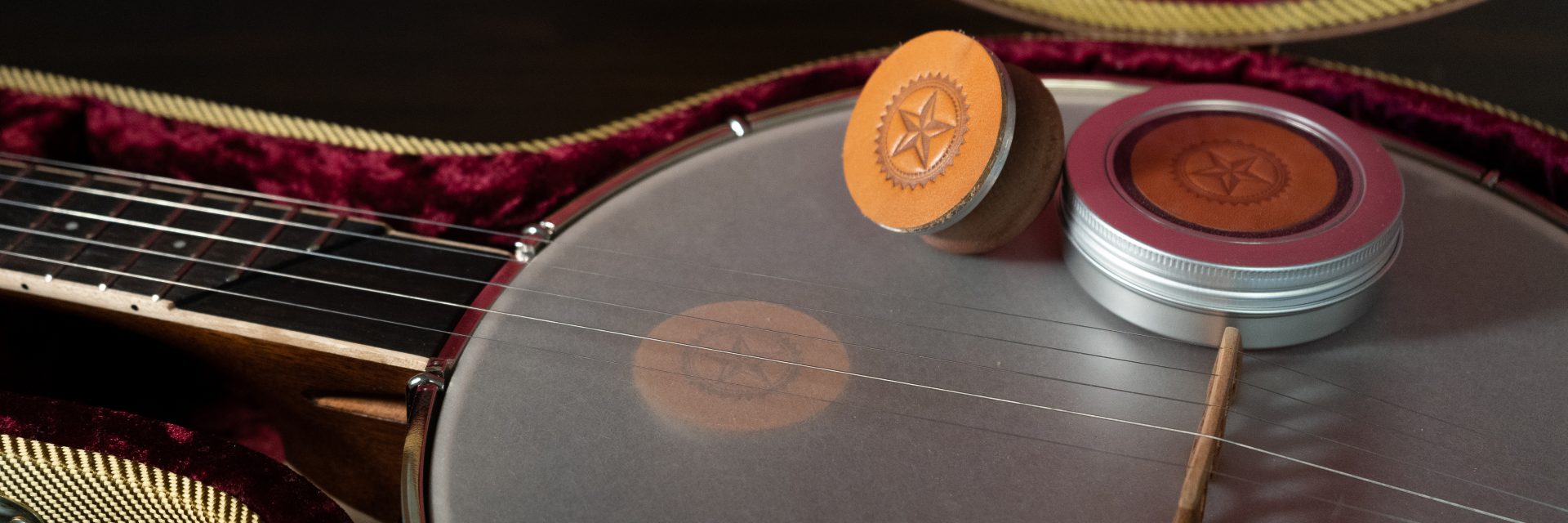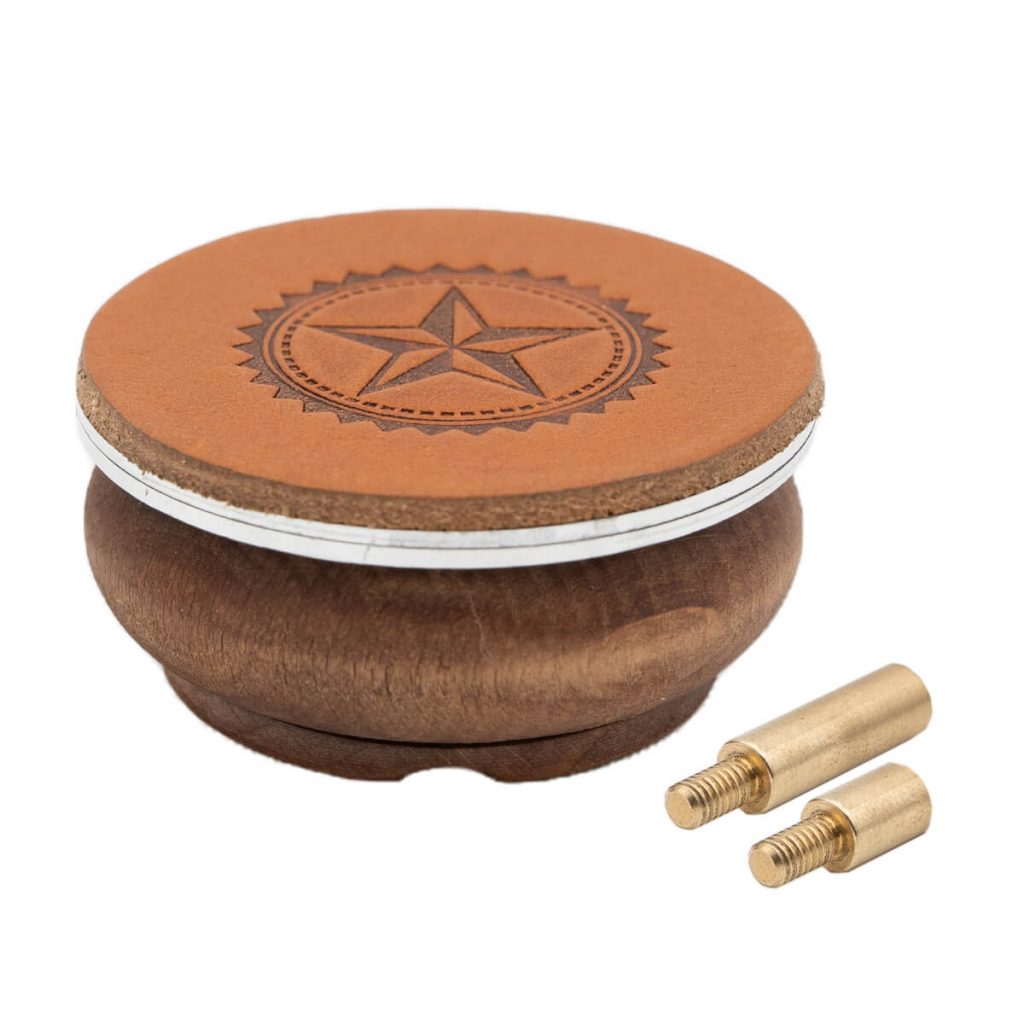0 - Not at all likely
5 - Very likely

Gold Tone is proud to announce that the FitsAll Banjo Damper is finally available for purchase on our website! “What is a FitsAll Banjo Damper?” “What does it do?” “What does it mean to dampen a banjo?” “Why would you want to dampen your banjo?”. These are all questions you are probably asking yourself right about now, so we will try and answer some of these questions in this article.

So the first questions we are often asked in regards to this product are, “What is it?” and “What does it do?” In order to fully answer these questions there is a bit of information you should know for background explanation. In the banjo world, especially the open-back banjo world, it is a common practice to place a rag, towel, sponge, or any of a variety of other items inside a banjo to “dampen” the banjo. If you have watched many videos of old-time banjo players, it is likely you have seen this before. So, why do open-back banjo players do this?
Banjos from the time period that most “old-time” music was forged, were almost exclusively gut stringed and had natural calf or goat hide heads. Even if the instruments had steel strings, the hide heads of the past were much more warm and “thumpy” sounding compared to modern day synthetic heads. Although, hide head banjos do still have overtones that can be alleviated though dampening. Banjos have a lot of vibration going on under the hood. So basically, the object used for dampening calms down or “dampens” overtones. So, what is an “overtone”? The best way I can describe an overtone is, a vibration that disrupts the clarity of tone. This happens due to a phenomenon called Sympathetic Resonance. This in a nut shell, means that one strings vibration can trigger another string to vibrate and make sound due to a harmonic relationship between the two notes. This vibration of open strings while playing more delicate pieces of music can tend to muddy the tone of the instrument, and it can cause the melody to be less pronounced and the lines between notes become blurred. This sympathetic vibration comes not only from open strings, but also the after length of string between the bridge and the tailpiece. Overtones from the after length of string are more prominent on tailpieces like No Knot style tails that have long after lengths. If you have any recording knowledge, a good thing to compare the effects of dampening a banjo with, is digital compression, but the damper provides physical compression. Folks have been dampening their banjos for a long time, but there has never really been a product designed specifically for this function. Folks have always just used what was laying around the house. I myself have even used a pair of socks! Well now there is an aesthetically pleasant, highly functional and highly versatile damper available that we hope becomes an indispensable tool as common as the capo for banjoists around the world.
Now that we have explained the basic premise of the FitsAll Banjo Damper and what its root function is, let us take a moment to talk about the product itself and how it works. This device is brought to you by Gold Tone in coordination with The Fox Den, an Oregon USA based small business. The original version of the FitsAll Damper, “The Dapper Damper” was designed, produced and distributed by The Fox Den owner, and chief imagineer, Cody Meyocks. We ran across him and his product on social media and we put our heads together to come up with a near universal design that will work on almost any banjo without having to be made to custom specifications. Now that we have covered the “where did it come from?”, now let’s talk about where it goes.
The FitsAll Banjo Damper is super simple to install, it wedges between the head and the dowel/coordinator rod inside the banjo. Actual placement is up to the user, but I use the damper in three main locations. The most common place I keep my damper is, half way between the bridge and the tension hoop at the neck. I also like the tone produced when placing the damper behind the bridge halfway between the tail and bridge. The third position is just in front of or directly under the bridge of the banjo. In this location the damper actually functions as a mute for those late night practice sessions. I promise your family and neighbors will thank you. Now… let us talk a little about how it works.
The FitsAll damper is very easy to use, you just put it between the head and dowel/coordinator rod of your banjo and twist until tight. If the damper is not tall enough to touch the head, no problem. Just add one or both of the extensions for a perfectly snug fit. THE BANJO DAMPER FITS BANJO SPACING FROM 1 INCH TO 2.5 INCHES. You can experiment around with the amount of pressure you install the damper with to find the perfect tone for you.
These little gadgets harbor so many possibilities. They are not only meant for open-back banjos, although not many people dampen their bluegrass banjos, there are applications for this device on resonator banjos as well. Especially in a jam setting where sometimes it’s easy for a banjo to drown out all the other instruments. We have found the FitsAll Damper to provide just the right amount of volume suppression to dial back a banjo JUST enough to not overpower jam sessions. It is a bit more complicated to install having to remove the resonator, but this can be done at home before the jam!